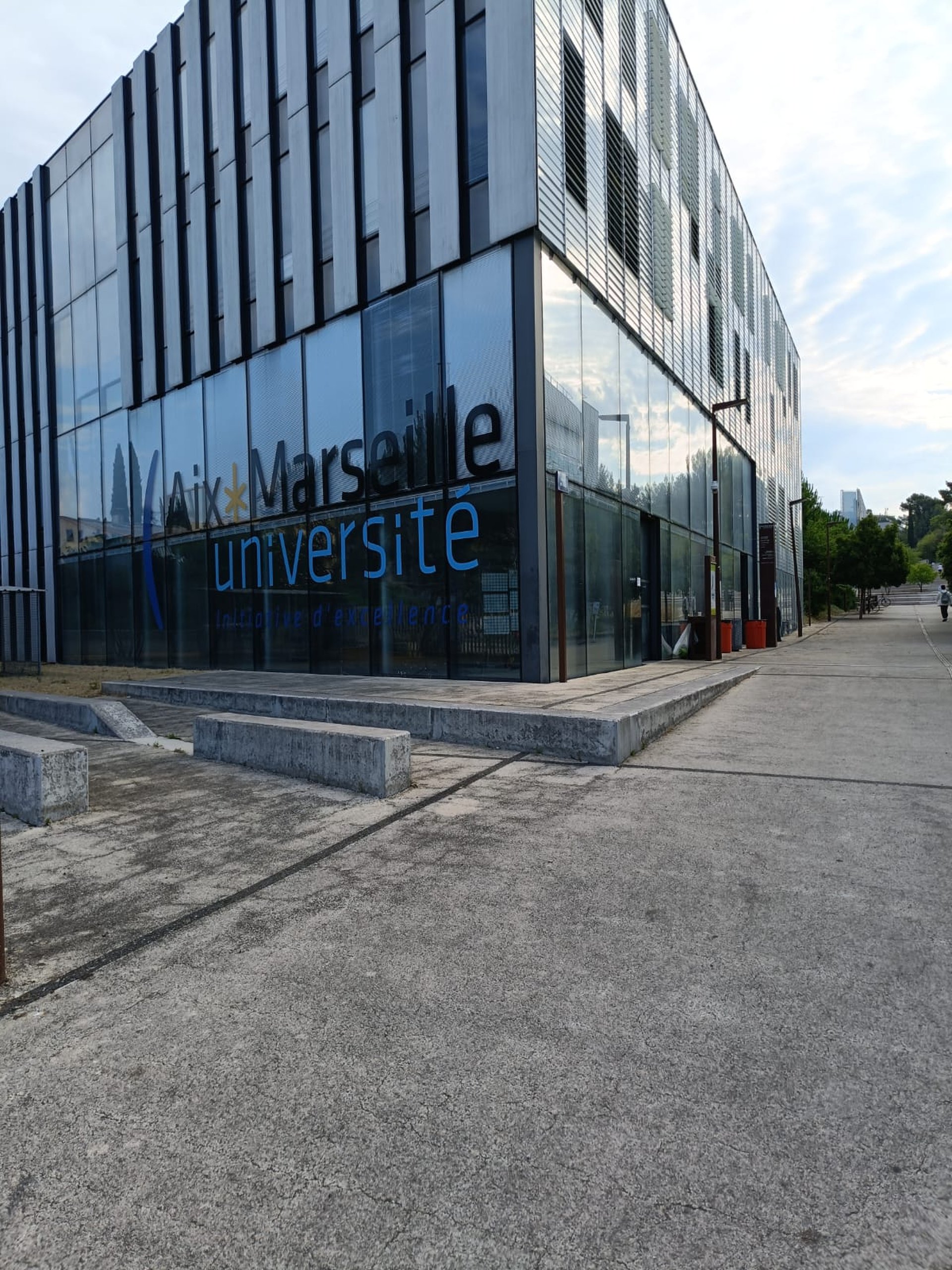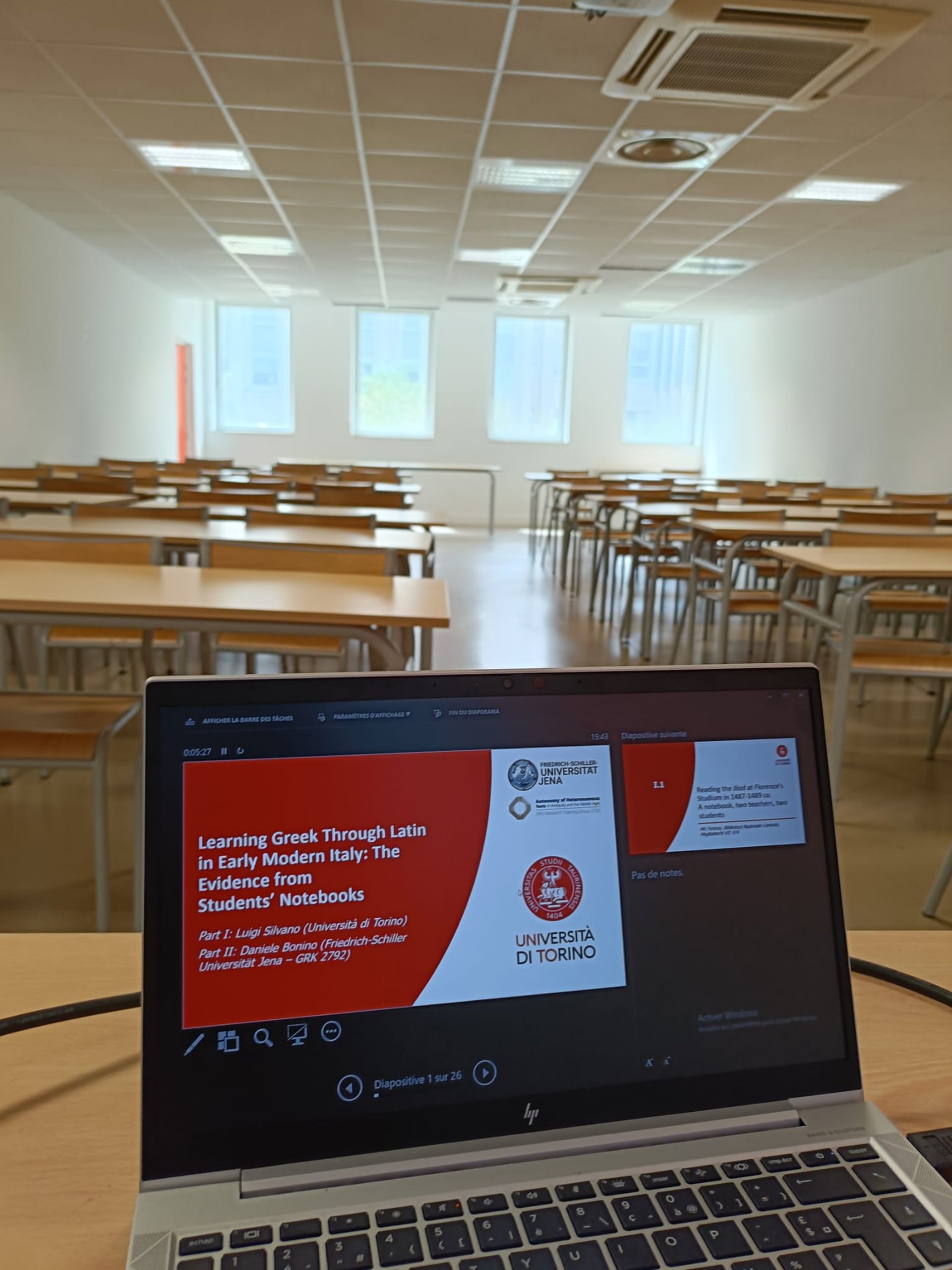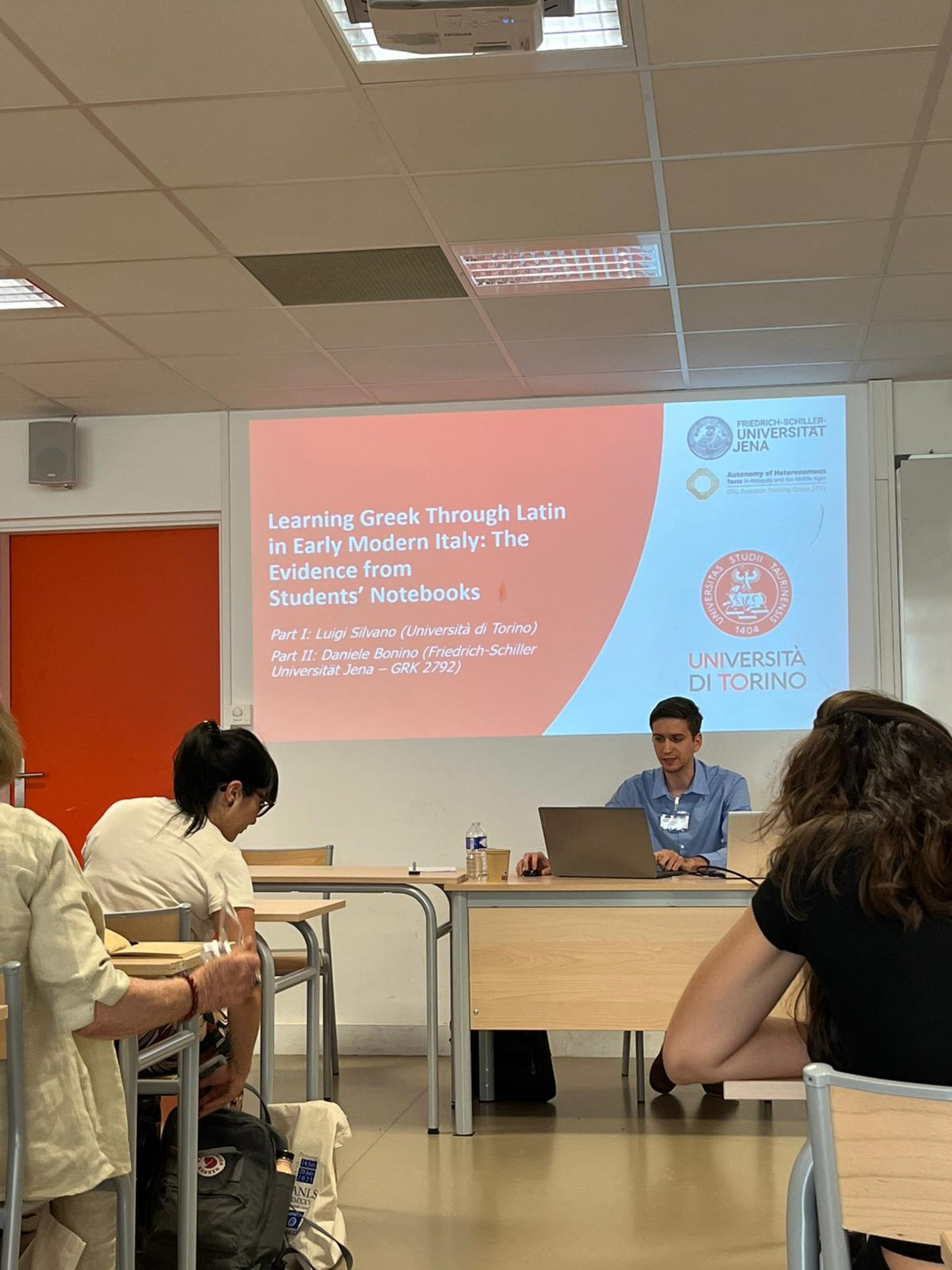Daniele Bonino at the conference “Neo-Latin, Language and Languages” in Aix-en-Provence
Between July 14th and 20th, the conference “Neo-Latin, Language and Languages” was held in the facilities of the Faculty of Arts of the Université Aix-Marseille in Aix-en-Provence, France. Organized by the International Association of Neo-Latin Studies (IANLS), it featured around 300 participants, most of whom also gave a talk. Needless to say, this was not only a very big opportunity to learn something new about the widely-intended field of Neo-Latin (that is, Latin in the Modern Era), but also for networking and to get to know who is studying what – information that turned out to be even more significant and useful than I thought.
The sessions in which the conference was divided regarded any possible declination of Neo-Latin studies: from “Latin translation of Italian texts” to “Norwegian Neo-Latin” and “Jesuit writings in China”; from “Self-Translation” to “Politics” and “Pedagogy”, passing through “Juridical Humanism” and “Scientific and Industrial Neo-Latin”. Areas which in the last years gained more and more importance, such as Digital Humanities and Gender Studies, also featured sessions that were highly attended.
Personally, given the wide range of options, I chose not to follow the conference by sessions, but rather by individual talks, moving (like many others) from one room to the other depending on which presentations I found most interesting at the time. This wasn’t always easy, as there were often around ten parallel talks going on at once, many of them equally useful and engaging. I focused mostly on translation studies, pedagogy and Renaissance schools/universities, since many of the talks in these fields could and did help me a lot for the development of my thesis project.
The conference also gave space to convivial moments, among which not only the coffee breaks and the lunches, but also a concert, guided tours, a theatre play in Old French and a final gala dinner. There really were plenty of networking opportunities provided by these gatherings, and meeting other people (PhD students, post-docs and professors), all active in the same field, was also very useful to discuss about others’ and my thesis topics and their possible developments.
On the last day, together with my third mentor, I, too, could give a joint speech, in which we shared and discussed with the attendees different examples of manuscripts containing 15th-century scholarly notes on Ancient Greek texts. The talk was attended by a public of thirty to forty people and was for me an opportunity to engage with a highly specialized audience that was open to discussion.


